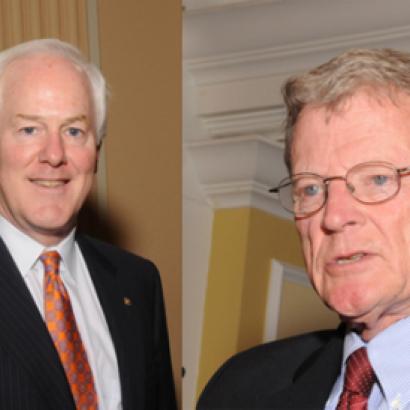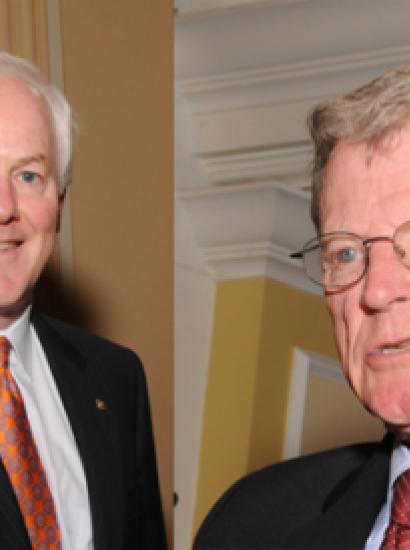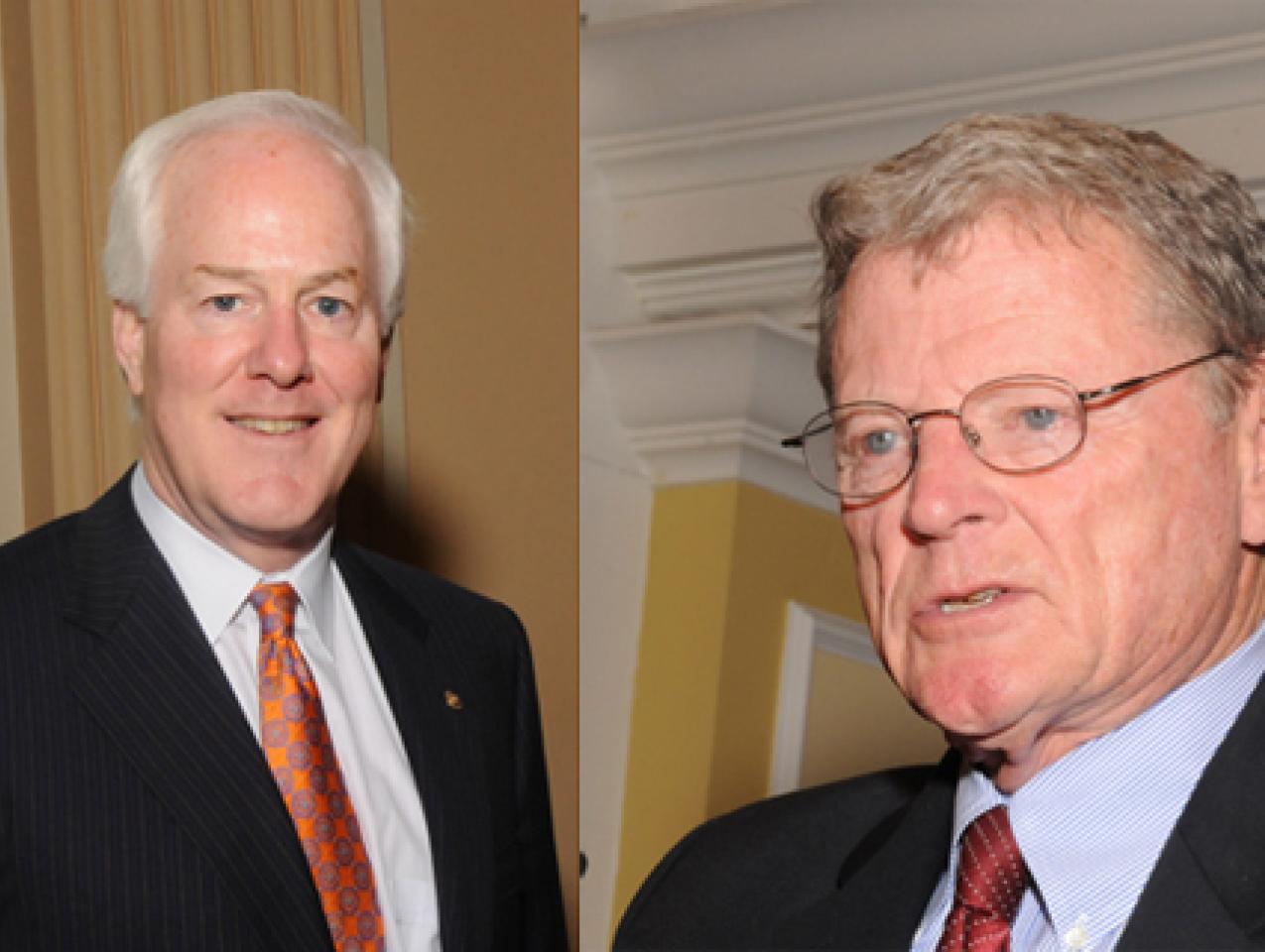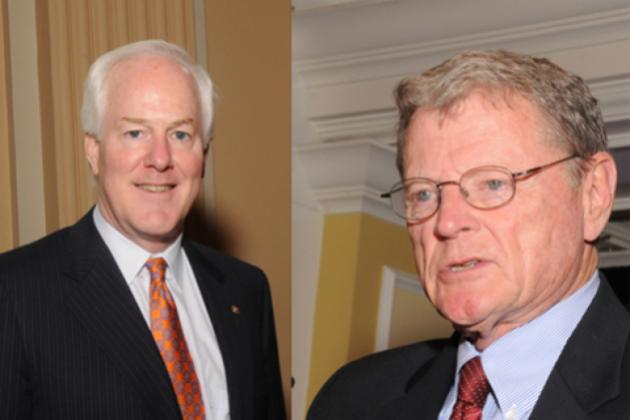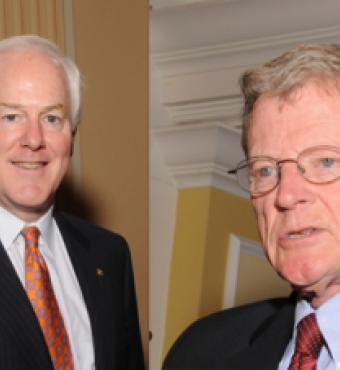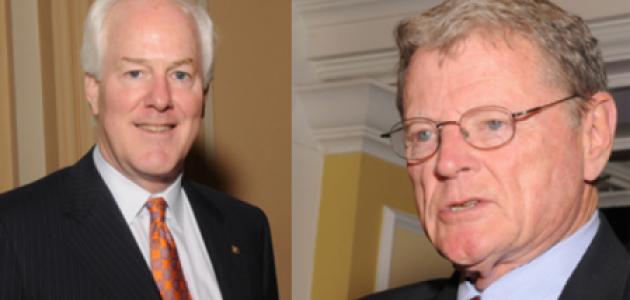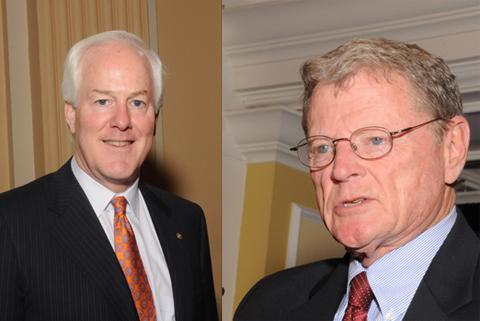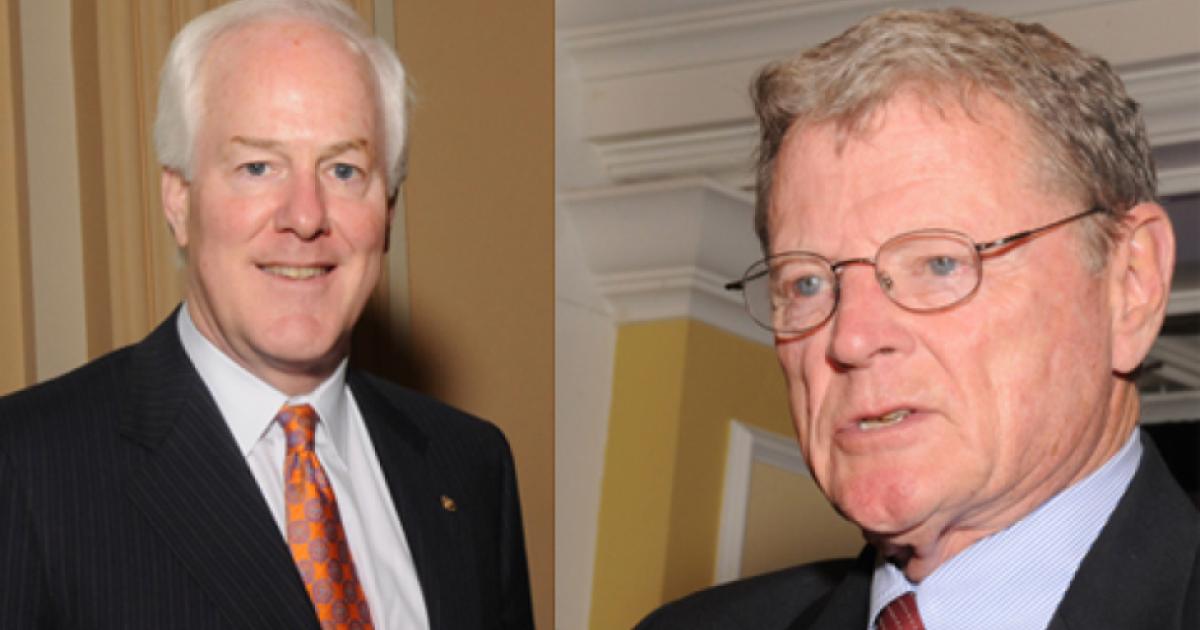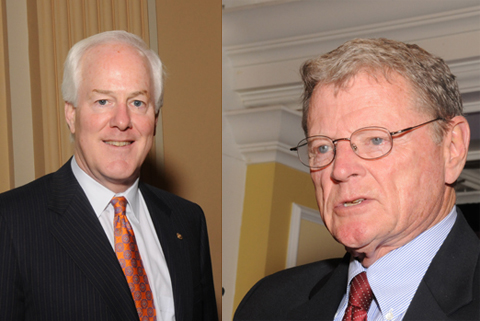
Bill Thomas, a member of the United States House of Representatives from 1979 to 2007, gave his “Observations on the 111th Congress” on Monday afternoon during the Hoover Institution Board of Overseers’ February 22 and 23 meeting.
Senators James Inhofe (R-Okla.) and John Cornyn (R-Texas) and Representative David Dreier (R-San Dimas, CA) spoke to the overseers about the current state of affairs on Capitol Hill and prospects for the future.
As part of the proceedings, Daniel Henninger, deputy editor of the Wall Street Journal, spoke about “The Fall of the House of Kennedy,” discussing collective bargaining in the public sector and the recent historic election in Massachusetts. Henninger was a finalist for a Pulitzer Prize for his editorials in both 1987 and 1996 and shared the Journal’s Pulitzer Prize in 2002 for the paper’s coverage of the September 11 attacks.
On Tuesday, Pulitzer Prize-winning syndicated columnist Charles Krauthammer began the day with remarks on the current political climate. Krauthammer’s writings appear regularly in the Washington Post, as well as in Time, the Weekly Standard, and the New Republic.
In his overview of health care reform, David Brady, the deputy director and Davies Family Senior Fellow, presented a talk titled “Why Health Care Policy Is—and Will Continue to Be—Hard to Reform.” Hoover fellows have written many commentaries on health care reform; they have been collected and are available online at the Hoover website (www.hoover.org/research/healthcare).
Kenneth Jowitt, the Pres and Maurine Hotchkis Senior Fellow, spoke on foreign policy; Senior Fellow Chester E. Finn Jr. addressed education issues; and Research Fellow Russell Roberts spoke on the future of capitalism.
At the event’s concluding program, John Cogan, the Leonard and Shirley Ely Senior Fellow; Victor Hanson, the Martin and Illie Anderson Senior Fellow; and Edward Lazear, the Morris Arnold Cox Senior Fellow, gave presentations on domestic policy, international affairs, and the economy. In addition to the overseers, members of the Washington media attended the program.
To promote its programs on many of the above-mentioned public policies, the Hoover Institution continues to increase its digital presence and outreach; it recently launched Twitter (twitter.com/HooverInst) and Facebook (www.facebook.com/pages/Hoover-Institution/300992409852) websites.







